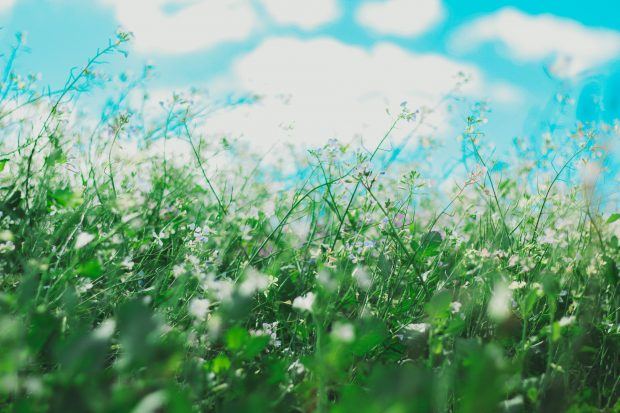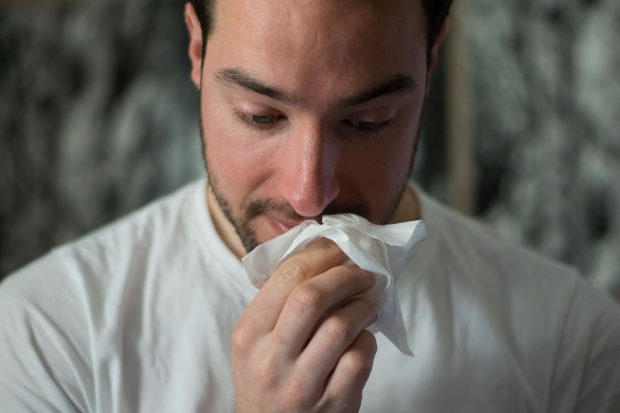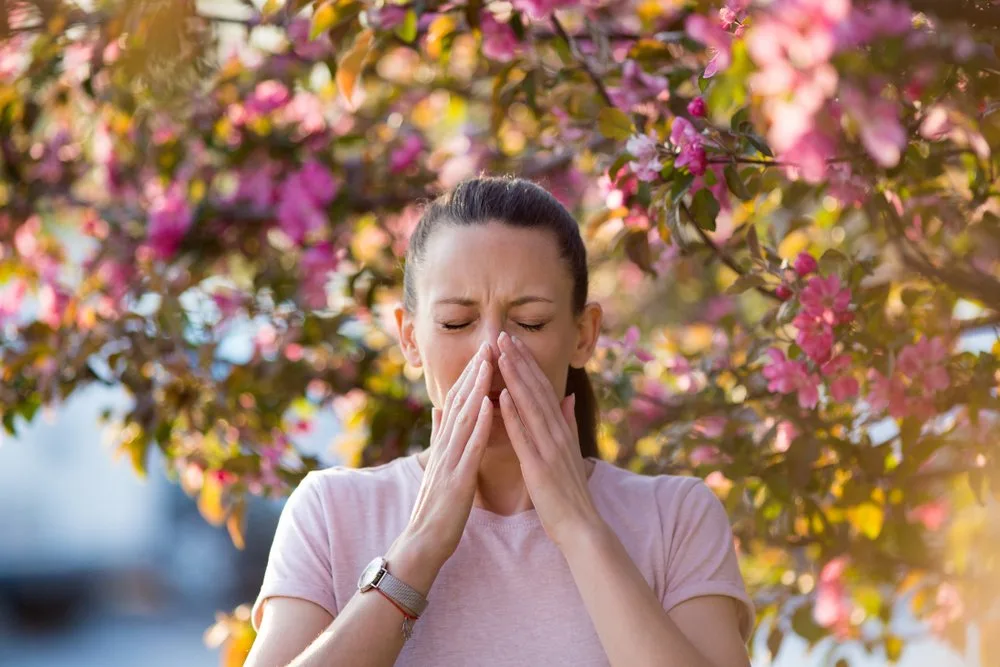According to the American Academy of Allergy, Asthma and Immunology, between 10% and 30% of the world population struggle with seasonal allergies. Seasonal allergies aren’t exactly fun. Now, according to recent research, allergy sufferers need to prepare for the worst. According to the research, climate change is about to make allergy season not just longer, but also more intense.
Allergy Season Is Getting Worse, Thanks to Climate Change
Last year, a study published in PNAS revealed that not only was the overall pollen season 20 days longer in North America than it had been in 1990, it also found that the pollen concentrations were up by about 21 percent. Now, a recent study has come out to share how rising temperatures and emissions are about to worsen seasonal allergies.

Photo by Allef Vinicius on Unsplash
“Pollen-induced respiratory allergies are getting worse with climate change,” says study first author Yingxiao Zhang, a graduate student research assistant in climate and space sciences and engineering at the University of Michigan, “Our findings can be a starting point for further investigations into the consequences of climate change on pollen and corresponding health effects.”
The study
For the study, which was published in Nature Communications, Zhang and her team created a predictive model that examines 15 of the most common pollen types. The model also looks at how projected changes in temperatures and precipitation will affect the production of these pollen types.
The researchers combined climate data with socioeconomic scenarios, correlating their modeling with data from 1995 through 2014. They then used their model to predict pollen emissions for the last two decades of the 21st century.
“Our latest study finds that the U.S. will face up to a 200 percent increase in total pollen this century if the world continues producing carbon-dioxide emissions from vehicles, power plants, and other sources at a high rate.
Under that scenario, the spring pollen season will generally start up to 40 days earlier and last up to 19 days longer than it does today.” – Yingxiao Zhang, Study First Author
How does climate change impact pollen count?
According to Zhang, how much pollen is produced depends on how the plant grows. Zhang adds that rising temperatures can increase plant growth, which, in turn, will influence pollen production. However, rising temperatures aren’t the only culprit behind pollen increase,
“We found that the bigger driver of the pollen increase will be rising carbon-dioxide emissions.” writes Zhang.

Photo by Brittany Colette on Unsplash
Zhang goes on to say that higher temperatures may likely extend the growing season. The temperatures will give plants more time to emit pollen and reproduce. On the other hand, carbon dioxide will fuel photosynthesis, so plants may grow larger and produce more pollen. Zhang shares that her team concluded that carbon-dioxide levels may have a much greater impact on future pollen increases.
As for which areas of America are expected to battle the worst of the sniffles? According to Zhang, this will be the northern states due to larger temperature increases in northern areas.
How do seasonal allergies affect our health?
According to Zhang, the effects of seasonal allergies go beyond a sniffling nose and headaches. Zhang cites research that reveals that seasonal allergies also have economic impacts, which include raised healthcare costs and more missed working days – both of which are expected to intensify.
How can I manage seasonal allergies?
The best and only way to prevent seasonal allergies is to avoid allergies that trigger the symptoms of seasonal allergies. Additionally, these small changes can go a long way in helping you avoid allergies.
References
Anderegg, W., Abatzoglou, J. T., Anderegg, L., Bielory, L., Kinney, P. L., & Ziska, L. (2021). Anthropogenic climate change is worsening North American pollen seasons. Proceedings of the National Academy of Sciences of the United States of America, 118(7), e2013284118. https://doi.org/10.1073/pnas.2013284118
Zhang, Y., Steiner, A.L. Projected climate-driven changes in pollen emission season length and magnitude over the continental United States. Nat Commun 13, 1234 (2022). https://doi.org/10.1038/s41467-022-28764-0
https://theconversation.com/pollen-season-is-getting-longer-and-more-intense-with-climate-change-heres-what-allergy-sufferers-can-expect-in-the-future-179158



![women [longevity live]](https://longevitylive.com/wp-content/uploads/2020/01/photo-of-women-walking-down-the-street-1116984-100x100.jpg)











Great Article
thanks Bob. We appreciate the feedback.